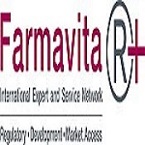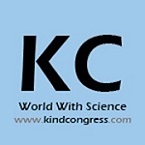Sessions & Tracks
Track 01: Pediatrics
Pediatrics is the specialty of medical science concerned with the physical, mental, and social health of children from birth to young adulthood. Pediatric care encompasses a broad spectrum of health services ranging from preventive health care to the diagnosis and treatment of acute and chronic diseases. Pediatrics is a discipline that deals with biological, social, and environmental influences on the developing child and with the impact of disease and dysfunction on development. Children differ from adults anatomically, physiologically, immunologically etc.
Track 2: Pediatric Cardiology
Pediatric cardiology is a medical specialty focused on diagnosing and treating heart conditions in children, from birth through adolescence. Pediatric cardiologists are highly specialized physicians who use various diagnostic tools to assess congenital and acquired heart defects. Treatment options include medications, minimally invasive procedures, or open-heart surgery, tailored to the child's condition. These experts play a vital role in managing congenital heart defects, ensuring early intervention, and monitoring patients' long-term well-being. Pediatric cardiologists may also address risk factors and engage in research to advance knowledge in the field, aiming to provide the best possible care for young patients with heart issues.
Track 3: Pediatrics Surgery
Pediatric surgery is a specialized branch of medicine that deals with surgical procedures specifically tailored for infants, children, and adolescents. Pediatric surgeons have expertise in diagnosing, treating, and managing a wide range of surgical conditions affecting young patients, including congenital anomalies, injuries, tumours, and infections. These surgeons are skilled in performing both routine and complex surgeries, often using minimally invasive techniques to minimize trauma and promote faster recovery in children. Common pediatric surgical procedures include appendectomies, hernia repairs, tumour removals, and corrective surgeries for congenital defects. Pediatric surgeons collaborate closely with other specialists, pediatricians, and healthcare professionals to ensure comprehensive care for pediatric patients. They play a crucial role in improving the quality of life for children by providing safe and effective surgical interventions tailored to the unique needs of young patients.
Track 4: Pediatric Neurology and Neurological Disorders
Pediatric neurology is a medical field specializing in diagnosing and treating neurological disorders in children. These disorders can affect the brain, spinal cord, nerves, and muscles. Common conditions include epilepsy, cerebral palsy, neurodevelopmental disorders like autism and ADHD, headaches, neuromuscular disorders, genetic disorders, movement disorders, strokes, and brain tumors. Pediatric neurologists collaborate with other specialists to provide comprehensive care, striving for early diagnosis and appropriate treatment. Their expertise is crucial in helping children with neurological disorders lead healthier, more fulfilling lives, and ensuring that unique pediatric considerations are addressed in the diagnosis and management of these conditions.
Track 5: Pediatrics Obesity
Pediatric obesity is a concerning public health issue characterized by excess body fat in children and adolescents. It results from a complex interplay of genetic, environmental, and lifestyle factors, including poor diet and sedentary behaviour. Childhood obesity is associated with numerous health risks, such as type 2 diabetes, high blood pressure, and cardiovascular disease. It can also lead to psychological and social challenges. Preventing and managing pediatric obesity involves a multidisciplinary approach, including dietary and lifestyle modifications, increased physical activity, and family support. Addressing childhood obesity is essential to ensure the long-term health and well-being of affected children and to curb the associated health care burdens.
Track 6: Pediatric Nutrition and Baby Foods
Pediatric nutrition is the science of providing essential nutrients to support the growth, development, and overall health of infants and children. It involves ensuring that children receive a balanced diet rich in vital nutrients, including vitamins, minerals, and macronutrients like carbohydrates, proteins, and fats. Baby foods are specially formulated to meet the unique nutritional needs of infants. They typically start with pureed or mashed foods and gradually introduce a variety of solids as a baby grows. Nutrient-dense and age-appropriate baby foods are vital for proper growth and development. Pediatric nutritionists and dieticians play a crucial role in advising parents and caregivers on the best dietary choices for children at different stages of development.
Track 7: Pediatric Dermatology
Pediatric dermatology is a medical subspecialty that focuses on the diagnosis and treatment of skin conditions in children, from infancy to adolescence. Pediatric dermatologists are experts in managing a wide range of skin disorders and issues specific to the pediatric population. This includes common problems like eczema, acne, warts, and birthmarks, as well as more complex conditions such as genetic skin disorders and inflammatory diseases. They play a crucial role in providing specialized care, addressing skin conditions' impact on a child's physical and emotional well-being. Pediatric dermatology aims to improve the skin health of children, promoting confidence and overall quality of life.
Track 8: Pediatrics Haematology & Oncology
Pediatrics Haematology & Oncology is a medical subspecialty that combines the management of blood disorders (haematology) and the treatment of childhood cancers (oncology) in infants, children, and adolescents. Pediatric haematologists-oncologists are experts in diagnosing and treating a range of conditions, including leukaemia, lymphoma, solid tumours, and various blood disorders like anaemia and haemophilia. They use a multidisciplinary approach, employing chemotherapy, radiation therapy, bone marrow transplants, and other therapies. The field also emphasizes research, clinical trials, and compassionate care, recognizing the unique needs of young patients and their families, while striving to improve outcomes and quality of life.
Track 9: Pediatric Ophthalmology
Pediatric ophthalmology is a specialized branch of medicine focused on the eye health and vision care of children, from new-borns to adolescents. Pediatric ophthalmologists are experts in diagnosing and treating a wide range of eye conditions specific to the pediatric population, including refractive errors, strabismus (crossed or misaligned eyes), amblyopia (lazy eye), and congenital eye abnormalities. They use various techniques, such as vision testing, eye exams, and sometimes surgical interventions, to address these issues. Early detection and intervention are essential in pediatric ophthalmology to prevent long-term vision problems and ensure healthy visual development as children grow.
Track 10: Pediatric Urology & Nephrology
Pediatric urology and nephrology are medical subspecialties that focus on the urinary and kidney health of children. Pediatric urologists specialize in diagnosing and treating conditions such as congenital urological anomalies, voiding dysfunction, and urological cancers in young patients. Pediatric nephrologists, on the other hand, are experts in kidney-related disorders, including kidney diseases, urinary tract infections, and electrolyte imbalances. They provide medical and surgical care, manage kidney transplants, and address issues like bedwetting and hypertension in children. Both specialties aim to ensure the well-being of children by addressing the unique urological and nephrological needs of this population.
Track 11: Pediatric Nursing
Pediatric nursing is a specialized area of healthcare that focuses on the medical care and well-being of infants, children, and adolescents. Pediatric nurses play a vital role in assessing and providing healthcare to young patients, offering a range of services including administering vaccinations, conducting health assessments, and supporting children and their families in managing illness and recovery. They collaborate closely with pediatricians, pediatric specialists, and other healthcare professionals to deliver age-appropriate care. Pediatric nurses also provide crucial education and emotional support, helping families understand medical conditions and treatment plans while ensuring the comfort and health of their young patients.
Track 12: Pediatric Emergency Medicine
Pediatric emergency medicine is a specialized medical field dedicated to the acute care of infants, children, and adolescents in urgent medical situations. Pediatric emergency physicians are experts in assessing, diagnosing, and treating a wide range of pediatric emergencies, from injuries and infections to life-threatening conditions. They work in hospital emergency departments and urgent care centers, providing rapid, age-appropriate care, often in high-stress environments. Pediatric emergency medicine emphasizes the unique healthcare needs of children, addressing both medical and emotional aspects, with a focus on quick and effective interventions to ensure the best possible outcomes for young patients facing critical health challenges.
Track 13: Pediatric Endocrinology
Pediatric endocrinology is a medical subspecialty that focuses on the diagnosis and management of hormone-related disorders in children, from infancy through adolescence. Pediatric endocrinologists specialize in conditions such as diabetes, growth disorders, thyroid disorders, and disorders of the pituitary and adrenal glands. They provide comprehensive care, which may involve hormone replacement therapy, dietary management, and close monitoring of growth and development. Early intervention and management are crucial to ensure optimal growth, development, and overall health for young patients with endocrine disorders. Pediatric endocrinology plays a critical role in promoting the well-being and quality of life of children with these conditions.
Track 14: Pediatric Dentistry
Pediatric dentistry is a specialized branch of dentistry dedicated to the oral health and dental care of infants, children, and adolescents. Pediatric dentists, or pedodontists, are highly trained to provide age-appropriate dental care, emphasizing prevention, education, and early intervention. They address a wide range of dental issues, including preventive care, cavity treatment, orthodontic assessment, and management of dental trauma. Pediatric dentists create a child-friendly, non-intimidating environment to ensure young patients' comfort and to foster a positive attitude toward oral health. Their goal is to help children maintain healthy smiles and establish lifelong habits for dental well-being.
Track 15: Pediatric Infectious Diseases
Pediatric infectious diseases are a medical subspecialty that focuses on the diagnosis, treatment, and prevention of infections in infants, children, and adolescents. Pediatric infectious disease specialists are experts in a wide range of infectious conditions, including bacterial, viral, fungal, and parasitic infections. They play a crucial role in managing infectious diseases that are unique to or more prevalent in children, such as childhood vaccinations and congenital infections. Pediatric infectious disease specialists work to prevent outbreaks, provide appropriate treatment, and address the specific healthcare needs of young patients, ensuring their well-being and reducing the spread of contagious diseases within the pediatric population.












